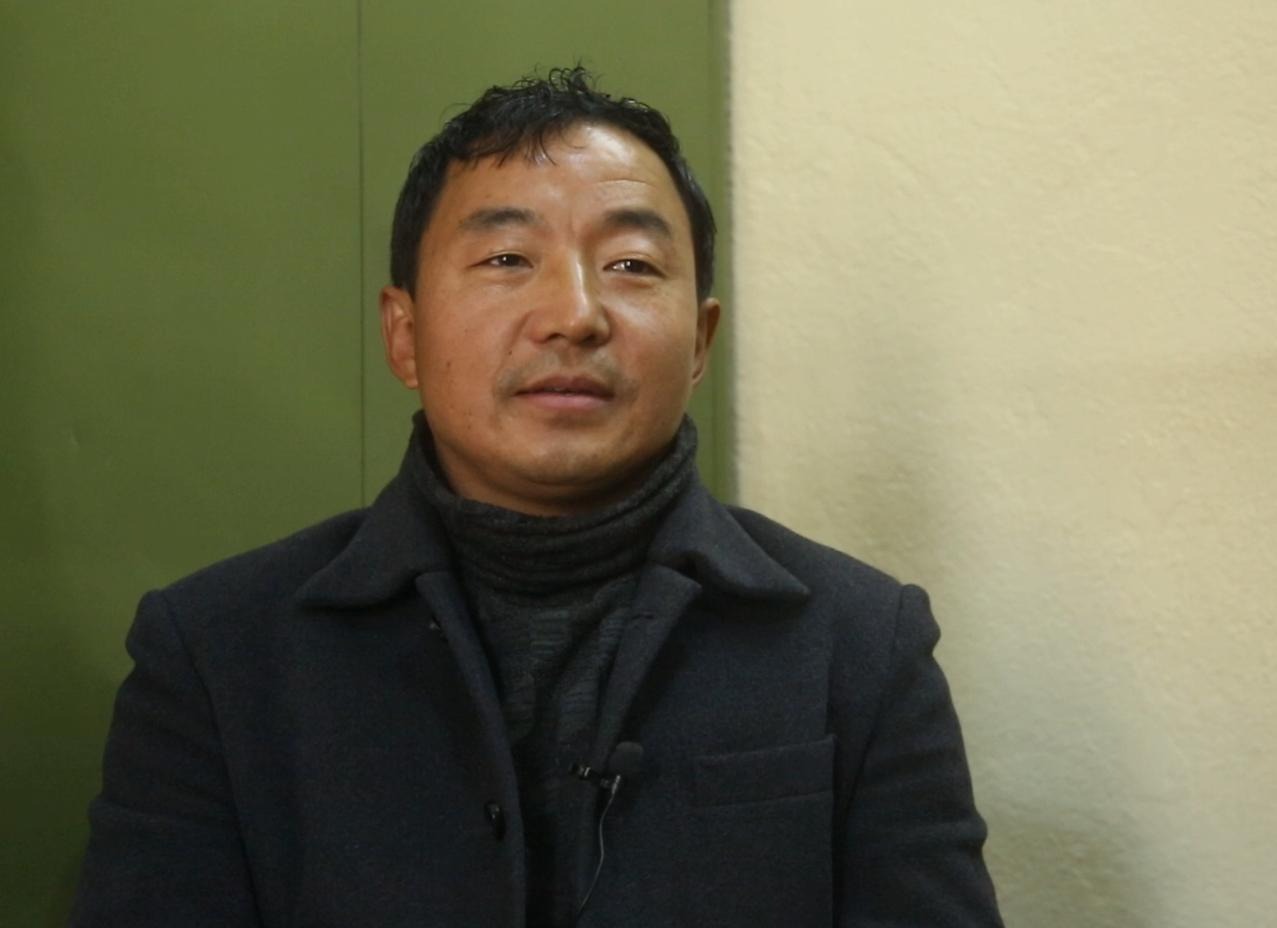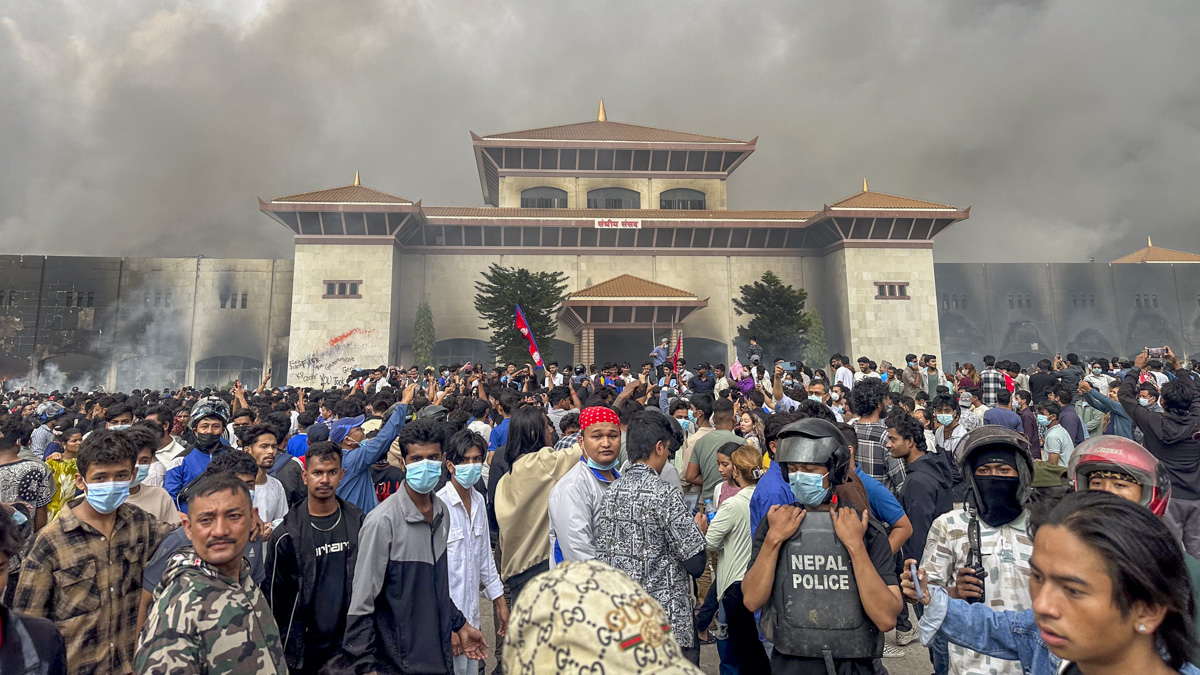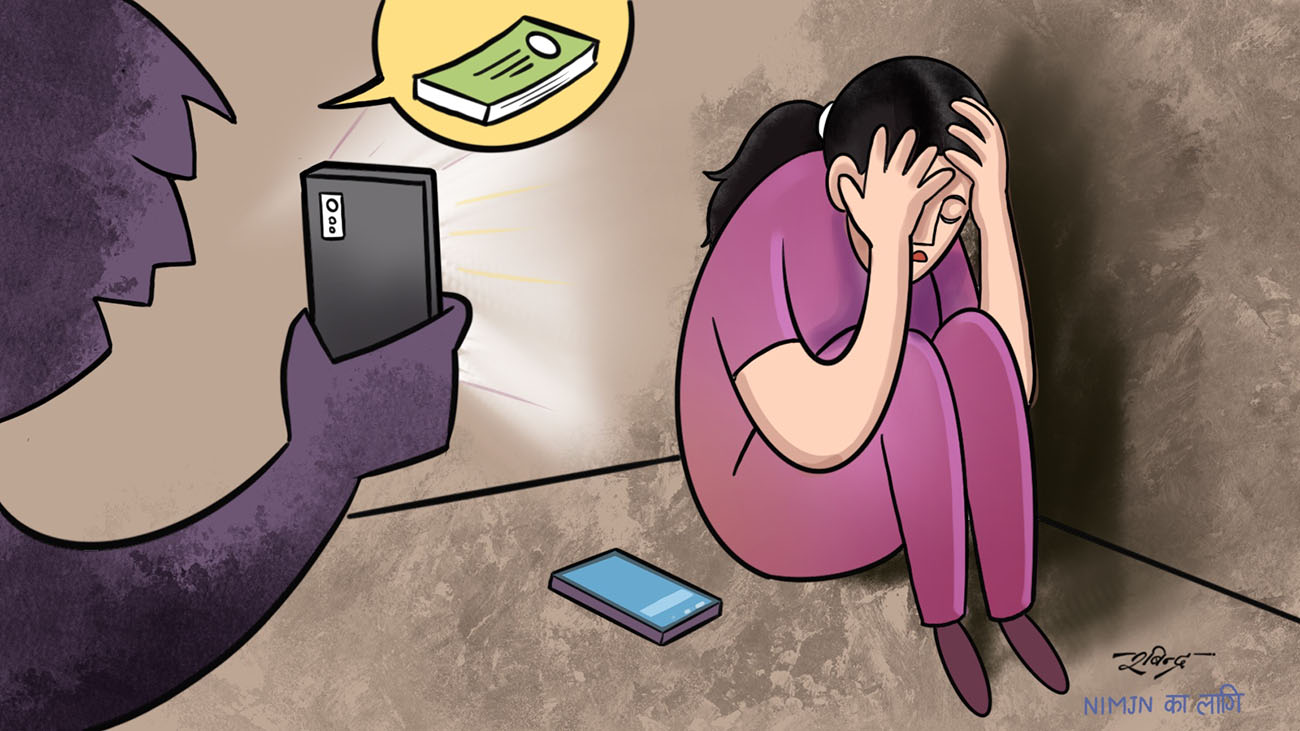On May 26, 2023, a group of 38 artists traveled to Canada for a cultural event. The program was supposed to last only a week but just four artists returned home. The rest stayed behind, having planned to remain in Canada before they even left their home country.
One artist, Sudhir Shrestha, who was part of the team, said, "My plan wasn't to stay there, so I hadn't prepared for it before leaving." He added, "Others had made full preparations." Shrestha, who says he went to Canada on his friends' advice, stayed for 15 months before returning to Nepal. He explained that he felt bad about staying illegally as an artist and feared setting a bad example.
A former member of the Film Technician Association, who chose to remain anonymous, stated that there's a network that helps people travel abroad as artists, only for them to stay there permanently. Sudhir Shrestha, however, said he didn't know how the other team members managed to stay.
But the former association member confirmed that, based on current trends, human smuggling is happening under the guise of art and artists in two main ways.
First, some well-known artists or entertainers who regularly organize events abroad are involved. They recruit individuals they want to take overseas, labeling them as assistants or giving them roles as artists in their projects. This helps create a fake work history or portfolio for the person.
Based on recommendations, they help prepare real government documents for these individuals. The recruits might even work for a short time to make things look legitimate. For this service, they are charged a fee, usually between Rs 300,000 to Rs 500,000 if they get a visa. However, if the visa is denied, the individual loses the money they've paid. The targets for this method are often people already known in the film industry, as their documents are easier to falsify for overseas travel.
The second method involves organized smugglers. These groups often target people who are not involved in the art sector at all. They create entirely fake documents for their victims. They charge a much higher price, ranging from Rs 1 million to Rs 3.5 million per person, depending on the destination country.
These smugglers typically demand half of the money upfront, before the visa is even granted. However, not everyone who pays this large sum actually gets to travel abroad. Some individuals are simply unlucky and never make it to the foreign country, losing their money in the process.
Ashok Pyasi Rai, a former General Manager of the Cultural Corporation (also known as The National Theater), agrees that human smuggling happens when people pretend to be artists and use fake documents. He stated that he discovered people being sent abroad with false papers. "I knew about this even before I became General Manager of the Cultural Corporation, or while I was there," he said. "I also found that artists themselves create fake documents."
Rai recalled being shocked when he discovered that his signature had been forged and his office's official letterhead used wrongly many times. He mentioned that there's a group of people who create these fake documents. He said, "The entire Singha Durbar, Nepal's main government complex, is controlled by Bagbazar, a known market for fake goods and documents. Many people have become victims because of this."
Swapnil Sharma, a singer, had posted a warning on his Facebook about two years ago regarding human trafficking disguised as art. He had written: "We (artists) must refuse to work with Australian organizers involved in human trafficking by offering artist visas."
Swapnil pointed out that cultural programs are held in Australia twice a week. He accused that these programs are not organized because there's a real need for artists but rather to help non-artists get into Australia by pretending to be performers.
No prosecution due to lack of evidence
In mid-August 2021, the phone of Dhananjay Regmi, who was then the CEO of the Nepal Tourism Board, rang. The call was from India, specifically from a staff member at the Norwegian Embassy in New Delhi.
The embassy staff had called Regmi to ask about a letter from the Tourism Board, numbered 309-2078/79. This letter supposedly requested visas for 14 artists from Blue Bird HD Company. They were said to be going to Norway to film a movie called 'Timro Najar' (Your Eye).
"The embassy staff asked if I was the CEO of the Tourism Board," Regmi recalled about the conversation from three years prior. "When I confirmed I was Dhananjay Regmi, the CEO, the staff then asked, 'You've recommended visas for 14 artists to go to Norway for filming. What's the purpose?'"
Regmi was confused. He told the caller, "Give me the names, and I'll check and let you know." He then asked officials at the Board, who confirmed that no one had made such a recommendation. "They had sent a fake letter using my name," Regmi explained. "They even included the names of famous artists like Keki Adhikari and Aryan Sigdel. If the consulate hadn't called me, I would have never known about it."
Keki Adhikari, a well-known artist, stated she had no idea about this incident. She claimed someone had used a fake passport with her details. "When this happened, I was abroad doing programs. I found out through the media that my name was included," she said. "I never signed up for that film and I know nothing about it. My documents were forged and submitted."
Keki believed her name and photo were misused because she is famous. This would make it easier to get visas for others. "People who wanted to go abroad were extorted," Keki explained. "They tricked people by saying famous artists were part of this plan and guaranteed their visas would be approved. That's how they collected money."
When Dhananjay Regmi discovered his name was forged for human smuggling, he filed a complaint with the Central Investigation Bureau (CIB) of Nepal Police. However, the CIB did not pursue the case, citing a lack of evidence. "We only had photocopies of the fake documents, which weren't useful even for forensic tests. The case didn't progress from there," said SP Sudhiraj Sahi, who was the Bureau chief at the time.
The accused claim innocence
Sudarshan Gautam, a film artist who played the main role in ‘Himmatwali’, is now on trial for human smuggling, disguised as sending artists abroad. He is currently in Canada, and his court case in Kathmandu District Court has been paused.
Sudarshan's team faces charges of taking three Nepali women to Haiti. Their journey involved traveling through Russia, Colombia and the Dominican Republic. These women, who were taken to Haiti from New Delhi, were identified as artists for a Nepali language film called 'Sanskar’. The official documents stated that five Nepali artists were invited to Haiti for filming.
However, Haiti was not their final stop. Attempts were being made to take them to the United States by ship from Haiti. Tragically, Sumitra Kunwar, one of these artists, died on the ship due to lack of food and water. The other two women were sent back to Nepal with help from the Nepali embassy in the US. According to these two women, Kunwar's body was thrown into the water from the ship.
Sudarshan Gautam claims he was wrongly accused. "They have been trying to bargain with me for money to settle the case," Sudarshan said through a message from Canada. "The case isn't resolved because I have refused to give them money."
Sudarshan Gautam stated that even though it was claimed a red corner notice was issued against him from Nepal, he found no such record at INTERPOL after checking. He said he has not returned to Nepal because he is afraid. "I have been traveling between the US and Canada without any problems," he said. "I fear that if I return to Nepal, they might arrest and jail me, and I might not be able to get out."
Suleman Sankar, also known as Iku, is accused of demanding between 1.5 to 2 million rupees from people. He allegedly promised to send them to Canada, the US, and European countries using artist visas. The Bureau arrested him based on complaints from victims and filed a case against him. The Kathmandu District Court later released him on a bail of Rs 500,000.
Suleman claimed he was innocent and refused to say more about the case, which is still being heard in court. He admitted to the money transactions but claimed he was falsely accused. Habindra Bogati, who was the Bureau spokesperson at the time, stated that Suleman had made the victims deposit money into the account of SMS Film Pvt Ltd, a company Suleman runs, at Global IME Bank. Bogati also claimed that Suleman was involved in making fake documents.
Even though Suleman's case was about human smuggling, the police charged him with a financial transaction crime. Gautam Mishra, an SP who was the spokesperson for the Human Trafficking Investigation Bureau at that time, said that Suleman should have been tried for human trafficking and transportation, fraud, and organized crime.
Hard to stop
On March 24, 2024, Lahure TV held a ‘Let's Play Holi’ event in Norwood Park, Sydney, Australia. Two actresses and the program host, Dinesh DC, traveled to Australia for this event. A priest was also supposed to join the team to perform religious rituals.
However, the priest was denied a visa by the embassy. He had applied with a recommendation letter from the NRNA (Non-Resident Nepali Association) Australia chapter, which stated they would cover his food and lodging. When his visa was rejected, the NRNA Australia chapter released a statement claiming their letterhead and an official's signature had been misused and forged. Lahure TV, the organizer, clarified that they had only invited the two actresses and Dinesh DC.
Dinesh DC, who coordinated the event and chairs Nepal's Film Development Board, stated that the contract was only for three people, including himself, and he coordinated accordingly. He claimed these were false rumors created to ruin the program. He insisted the priest was not part of their team.
DC added that to stop human smuggling disguised as art events, he recommended changes to film policy right after becoming Film Board chair, and that policy was sent to the Prime Minister.
However, he also admitted it's tough to stop those determined to go abroad by any means. "People who want to go abroad no matter what, and using different disguises, will go anyway," he said. "The priest who was denied the Australian visa might have already reached another country. If you check, you might find out."

“Media headlines unsettled me”
- Keki Adhikari
When the visa application for Norway, supposedly for filming, was happening, I was out of the country for work. After news broke about fake government documents being used for this, the Central Investigation Bureau (CIB) called me for questioning. When I went to their office and saw the papers, I realized my passport, signature and everything else had been forged.
I found out they did this because they believed it would be easier to get visas if they included a famous artist's name in the team.
Only later did I learn that money had been taken from people who were preparing to go abroad. They were told that famous artists were also signed up and their visas were guaranteed, which is how they collected money from them.
Other artists, besides me, had signed for the film, and their original documents were submitted. But who is at fault for them being made to sign for a fake film shooting? It's the government's job to find out the truth. I am ready to help in any way I can.
Some media outlets reported this issue at the time. I later posted a clarification about it on social media. The headlines back then were very upsetting. Many organizers who host international programs judged me based on those headlines, and some even canceled their events. If one person does something wrong, it doesn't mean everyone is bad. Media should be careful with headlines about human smuggling disguised as art. The entire art sector shouldn't suffer because of one person's dishonest actions.
(Based on a conversation with Keki Adhikari)

“There is a tendency to go abroad in the guise of artist and never return”
Ashok Pyasi Rai, former General Manager, Cultural Corporation (National Theater)
These fraudulent activities were happening long before I became the General Manager. I was and still am well aware of the trend where people go abroad pretending to be artists and then stay there illegally.
Once I learned about this, I started working to clean up this problem. I began posting the names of those who received identity cards from the Cultural Corporation, along with their card numbers, on the office website. You can find this list of artists there.
I don't have official information about 17 people being sent back from Japan by immigration. However, I can't say for sure that such an event didn't happen.
Even today, you can find people who create fake invitation letters from Donald Trump, complete with forged signatures, and line up at the U.S. embassy in Kathmandu for visas. In such a situation, I can't rule out the possibility of my signature being forged. These people trick even high-level government offices like Singha Durbar and create fake documents right on the streets of Bagbazar.
(Based on a conversation with Rai)
Please adhere to our republishing policy if you'd like to republish this story. You can find the guidelines here.



